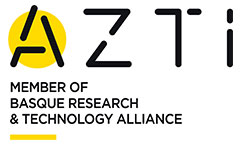AZTI Summer School 2022
Addressing the cumulative impacts of multiple human pressures in marine systems
Aquarium of San Sebastian (Spain): 8 - 9 September 2022
Introduction to the course
Since 2004, AZTI annually organizes an international ‘Summer School’ on marine research related cutting-edge topics, always trying to bridge the gap between research, policy and society. The course is taught by about 5-10 speakers and attended by around 40-60 students that join from 10-15 countries each year. Some years we have organized the school back-to-back with European projects, such as DEVOTES, MARS, SOPHIE, GlobalHAB, as well as other organizations (e.g. Euromarine, EEAcademy, European Environment Agency -EEA-, Frontiers in Marine Science). This year, the school is organized by AZTI, in the framework of the ECSA59 conference and in the topic of “Cumulative impacts from multiple human pressures”.
Human activities at sea (e.g. fishing, shipping, extraction of materials, marine constructions, oil and gas exploration) and coastal areas (e.g. agriculture, industry, tourism, etc.) have expanded considerably, leading to an increased level of pressures and subsequent degradation of ocean health which ultimately affects human health. Despite the efforts of the Sustainable Blue Economy and the Green Deal to minimize the impacts of human activities at sea, maritime activities, and therefore their pressures and impacts, are likely to continue increase, driven by human demands. Examples of such activities include aquaculture, tourism, renewable energy, biotechnology, and seabed mining. Although these activities should be regulated and planned through the implementation of the Maritime Spatial Planning Directive (MSPD; Directive 2014/89/EU), the single and cumulative impacts from these activities will add to those posed by already existing activities, and may translate to impacts on human welfare. The cumulative impacts from the human activities and pressures are further enhanced by the effects of climate change, which are altering marine ecosystems, with dramatic effects on biodiversity and habitats worldwide, as highlighted recently by a joint report from IPBES and IPCC.
Hence, there is a need to ensure that multiple marine and coastal human activities are carried out in a sustainable manner to achieve the goals of the Biodiversity Strategy for 2030 (COM(2020)380), GES under the Marine Strategy Framework Directive (MSFD; Directive 2008/56/EC), and the favorable conservation status of vulnerable habitats and species (Birds and Habitats Directives (BHD; 92/43/EEC)), and ultimately contribute to the United Nations Decade of Ocean Science for Sustainable Development (2021-2030) and the Sustainable Development Goals (SDGs). This will contribute to guarantee the maintenance of the provision of marine and coastal ecosystem services, under a background of climate change, which in turn, will allow mitigation and adaptation to it, increasing the resilience of marine and societal systems.
Hence, the main objective of the school is to give an overview on the challenges and pressures that oceans are facing, the cumulative effects of multiple pressures in the marine ecosystems, as well as the policies and management needed to revert that situation, with solutions for impacted seas.
September 8th 2022
September 9th 2022
Summary of the school and discussion with all participants
To register for the AZTI Summer School 2022 please click here.
Your ticket includes complimentary access to the Aquarium of San Sebastian.
